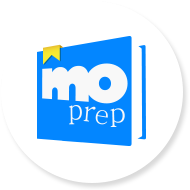Why Prep? Part 1: Fundamental Skill Building
School is the main source of learning for kids. Public or private, you put your trust in the school system to teach your kids the fundamental skills they will need to be successful in the future. However, your district, school, and even which teacher you have heavily impacts what you’re learning and how deeply you’re learning it. Many of the skills we deem fundamental aren’t directly learned or tested in school, at least not to the extent that they’ll be used outside of the classroom. This plays into why we hear common complaints from students such as “I’m never going to use _____ again.” They’re missing the most important aspect of knowledge: how to apply it.
However, one of the biggest strengths of the ACT and SAT is that they test the practical concepts associated with each subject. Because these tests were designed to test the fundamental skills that higher education institutions have deemed necessary, the learning involved in studying for the test inherently teaches you those important skills. What are those teachable skills, then, and how does studying for a test help you learn them?
Using Math to Your Advantage
Whether you like it or not, we all encounter Math in everyday life. Calculating tax at the grocery store, adjusting recipes, and figuring out how many stops you’ll have to make for gas on your road trip are just a few of the ways that you can apply simple Math concepts. You may think of Math in terms of what you see in a Math class, which is usually a bunch of numbers and symbols rearranged for you to solve. However, the Math we see in our daily lives are all word problems: I have this many dollars and I need to make an equation to figure out how many items I can buy with tax. Some people find it easy to translate this from sentences containing Math information to an actual formula (e.g. x + x($0.0725) = total $), but most people aren’t directly taught how to do this. Because translating word problems is rarely thought of as a skill in ‘normal’ Math classes, it’s not explicitly tested in a school setting.
Standardized tests are one of the few places where students are tested directly on Math applications. The SAT, ACT, and higher ed exams (e.g. MCAT) all aim to measure if you have the necessary skills you need prior to entering college or graduate school. Studying for these exams forces you to learn how to use the functional aspects of Math to do well on the test. How to determine what language in the question is important, set up an equation, and how and when to use standard formulas are skills that you will use for the rest of your educational and professional career.
Reading Effectively and Efficiently
Literacy is spoken about often as you’re learning to read and gaining comfort in reading, but very rarely is it emphasized after early elementary school. Most of the strategies that you’re taught are taught when you’re just starting to read and develop those skills and aren’t revisited unless there’s a perceived problem. Strategies such as underlining important words or marking when a topic changes, while simple, require the reader make an active effort to improve. Because these strategies aren’t reinforced in the school setting, you lose your ability to read effectively once the material becomes more complex: the content gets a lot harder, but you keep operating with the same skill level.
Do you tend to go back and forth when looking for an answer in a passage and can you learn a strategy to make it more likely you remember the question? How do you most effectively find an answer if you don’t know where it might be in the reading? These are questions you can answer by implementing different reading strategies to match your starting place. You need to develop strategies that are effective for you specifically, as it’s not a one-size-fits-all endeavor. A great benefit of one-on-one tutoring for standardized tests is that you get to try out different strategies geared towards you in a low-risk environment. This setup acts as a way to simultaneously study for the test and prepare you to scale these strategies when the content gets even more difficult.
Studying and Test-taking
High school isn’t the last time you’ll see a test; college, graduate school, and the workplace all require it at some level. Test-taking skills are rarely taught throughout your educational career, which is why many able students experience discomfort in their transition from high school to college. Measuring performance and timing, creating a study plan, and even just knowing what topics to focus on can be difficult when you are starting with a virtual zero-level knowledge base. However, these are all teachable skills that preparing for an official test will help you to develop as you go through the process of studying for yourself. Reinforcement of strategies, ongoing discussions about performance, and being held accountable for the knowledge you’re learning all contribute to why individual tutoring is consistently shown to have the highest benefit for students as an educational intervention.
Each of these skills has a large learning curve, which is why it’s important to learn the fundamentals before you need them. While preparing for the standardized tests isn’t the only way to address them, it continues to be a proven medium to both increase your score and to prepare yourself to use these skills in the future.
